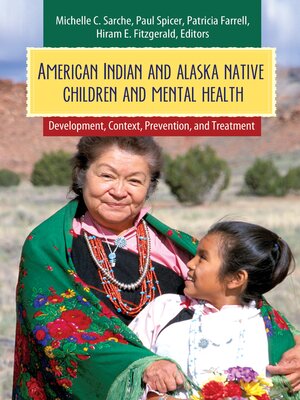American Indian and Alaska Native Children and Mental Health
ebook ∣ Development, Context, Prevention, and Treatment · Child Psychology and Mental Health
By Paul Spicer

Sign up to save your library
With an OverDrive account, you can save your favorite libraries for at-a-glance information about availability. Find out more about OverDrive accounts.
Find this title in Libby, the library reading app by OverDrive.



Search for a digital library with this title
Title found at these libraries:
| Library Name | Distance |
|---|---|
| Loading... |
This unique book examines the physical, psychological, social, and environmental factors that support or undermine healthy development in American Indian children, including economics, biology, and public policies.
The reasons for mental health issues among American Indian and Alaska Native children have not been well understood by investigators outside of tribal communities. Developing appropriate methodological approaches and evidence-based programs for helping these youths is an urgent priority in developmental science. This work must be done in ways that are cognizant of how the negative consequences of colonization contribute to American Indian and Alaska Native tribal members' underutilization of mental health services, higher therapy dropout rates, and poor response to culturally insensitive treatment programs.
This book examines the forces affecting psychological development and mental health in American Indian children today. Experts from leading universities discuss factors such as family conditions, economic status, and academic achievement, as well as political, social, national, and global influences, including racism. Specific attention is paid to topics such as the role of community in youth mental health issues, depression in American Indian parents, substance abuse and alcohol dependency, and the unique socioeconomic characteristics of this ethnic group.
The reasons for mental health issues among American Indian and Alaska Native children have not been well understood by investigators outside of tribal communities. Developing appropriate methodological approaches and evidence-based programs for helping these youths is an urgent priority in developmental science. This work must be done in ways that are cognizant of how the negative consequences of colonization contribute to American Indian and Alaska Native tribal members' underutilization of mental health services, higher therapy dropout rates, and poor response to culturally insensitive treatment programs.
This book examines the forces affecting psychological development and mental health in American Indian children today. Experts from leading universities discuss factors such as family conditions, economic status, and academic achievement, as well as political, social, national, and global influences, including racism. Specific attention is paid to topics such as the role of community in youth mental health issues, depression in American Indian parents, substance abuse and alcohol dependency, and the unique socioeconomic characteristics of this ethnic group.







